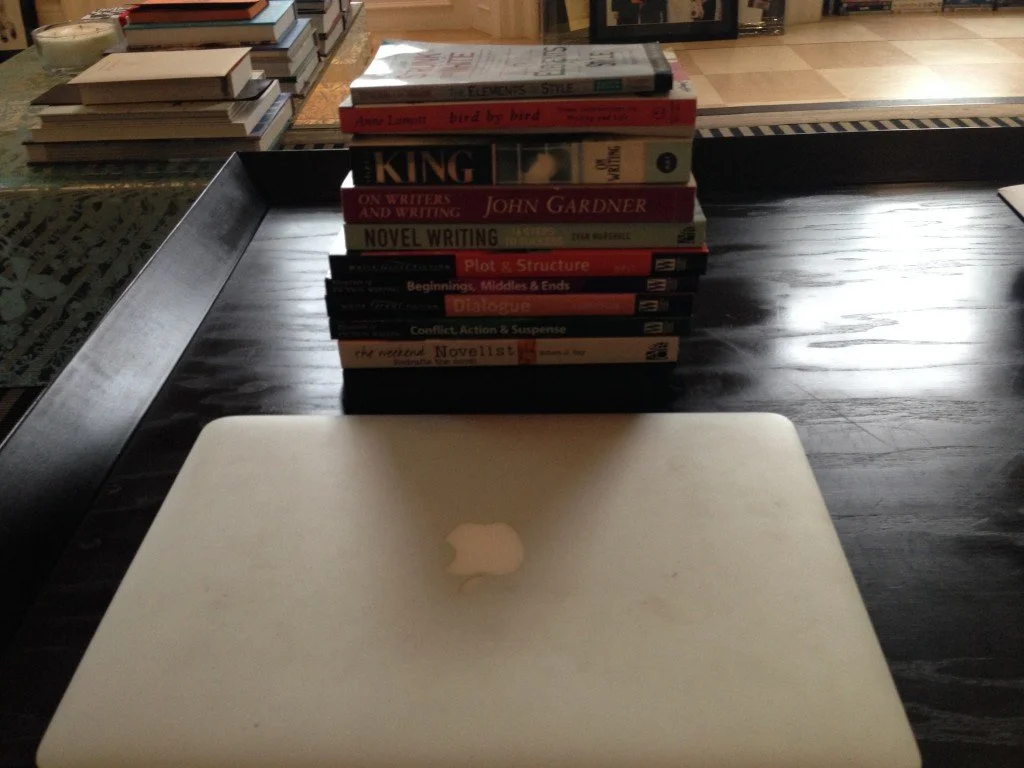The Novice Novelist
Jul 2015
Novice / noun: a person new to and inexperienced in a job or situation.
I know the feeling. I had read many novels over many years but had never written one. How hard could it be? Extremely. Without any formal background in creative writing, save a brief Arvon Course and attendance at the occasional conference, writer’s group and seminar, I was the very definition of a novice. My time in academia had taught me that books held the key to knowledge and anything could be learned if you were willing to apply yourself and knew where to look.
After several trips to my local Waterstones I was equipped with an array of texts that promised to teach me everything I needed to know; titles such as Novel Writing—16 Steps To Success, and The Weekend Novelist. Other titles were less broad in scope and focused on specific aspects of writing, such as dialogue, plot and structure, conflict, action and suspense. I devoured these books eagerly, keen to know what their authors knew.
Did they help? Yes and no. There are certain technical aspects of writing a novel that can, and indeed should be learned, (the conventions of Point of View, for example), but mostly I felt bogged down by the opinions of others, related in the form of ‘rules’. For me, the imposition of rules stifled the creative process. Every time I sat down to write, I found myself distracted—more concerned about doing it ‘right’ than letting go of the censorious voice in my head and allowing words to flow onto the page.
Two and a half novels later this is what I have learned. Talent cannot be taught, but it can be cultivated and the way to do that is to write. Whether it’s a short story or a novel, if you have a germ of an idea, don’t hold back—sit down and write. You can worry about all the technical stuff later. When you have finished writing for the day (it might be a snatched half-hour or an eight-hour stretch), put your work to one side and do something else for a while. I find that when I come back to what I have written after a break, it’s much easier to see what works and what doesn’t, what I’ve done well and what I haven’t. And the ability to edit your work improves with practice. Like pretty much everything else, the more you do it, the more proficient you become.
I was once at a writer’s conference and attended a seminar on characterization. The speaker was a successful ‘chic-lit’ author who said that before she wrote a single word of her stories, she sat down and made highly detailed character maps. For each character she listed everything about their appearance, how they spoke, what type of school they went to, what they liked to eat, how they walked, when they lost their virginity, their relationship with their family, and so on. I remember feeling amazed and wholly inadequate. Not only did I not make character maps, I wouldn’t be able to because until I get stuck into a story, I don’t really know my characters that well. They develop as I put them into various situations and I figure out how they would act, what they would say. The further I get into a story, the better I know my characters. By the end of a novel, I know them better than I know myself. When my first draft is finished, I go back to the beginning and flesh them out. It’s very satisfying.
The point here isn’t that one way is right and the other is wrong. It’s more a question of what works for one writer might not work for another. We are as individual as the stories that we tell. I remember almost giving up before I started when, flicking through a step-by-step book on how to perfect your novel, I saw page after page of tables and diagrams. If it works for you, fine, but if it doesn’t, that’s fine too.
Here are a few of the books that have inspired me.
Anne Lamott’s Bird By Bird: Instructions On Writing And Life, is one I dip in and out of. Lamott’s take on first drafts is hilarious and so very true. Stephen King’s On Writing is a classic. There is nothing this man doesn’t know about his craft. If you don’t have time to read the 360-plus pages, read his 22 Lessons On How To Be A Writer (link below). And although it is not easy, and probably better suited to the more advanced writer, John Gardner’s 1983 classic, The Art Of Fiction, has some invaluable insights. His advice on ‘psychic distance’ and the importance of creating ‘a vivid and continuous dream’ for the reader, have influenced many writers over the decades, myself included. Next time: Reading & Book Groups
Resources: Endless, but those I can personally recommend are:
Stephen King – On Writing and / or Stephen King – On How To Write, at
http://www.businessinsider.com/stephen-king-on-how-to-write-2014-7?IR=T
Anne Lamott– Bird By Bird: Instructions On Writing And Life
Strunk and White – The Elements of Style (an essential little volume on grammar and style)
Writer’s & Artists Yearbook (the writer’s bible)
https://www.writersandartists.co.uk
Expert opinions on what can and can’t be learned from writing courses:
http://www.theguardian.com/books/2014/mar/14/creative-writing-courses-advice-students
Debunking popular myths about writing
http://davidrain.net/the-seven-writing-myths/

